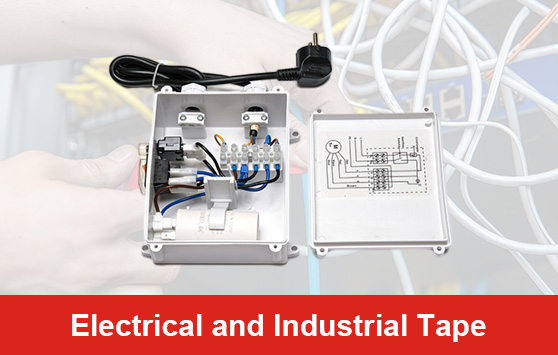Understanding HV Insulation Tape A Key Component in Electrical Safety
Insulation plays a crucial role in the world of electrical engineering and installations, specifically when dealing with high-voltage (HV) applications. Among the materials used for insulation, HV insulation tape stands out as an indispensable component. This tape is engineered to withstand the rigors of high-voltage environments while ensuring safety, reliability, and longevity. In this article, we will explore what HV insulation tape is, its composition, applications, and significance in electrical safety.
What is HV Insulation Tape?
HV insulation tape is a specialized adhesive tape designed to insulate electrical wiring and components that operate under high-voltage conditions. The tape is typically made from materials such as polyester, PVC (polyvinyl chloride), or rubber, which are chosen for their excellent dielectric properties, heat resistance, and weatherproof characteristics. This allows HV insulation tape to prevent electrical leaks and short circuits, thereby protecting both the equipment and the personnel working in close proximity.
Composition of HV Insulation Tape
The effectiveness of HV insulation tape lies in its unique composition. Some of the key materials used in the manufacturing of HV insulation tape include
1. Base Material Often made from high-grade PVC or polyethylene, the base material provides the primary structure and insulation properties. These materials are specifically chosen for their dielectric strength and flexibility.
2. Adhesive Layer This layer is crucial for ensuring that the tape adheres well to various surfaces, such as metal, plastic, and rubber. A strong adhesive ensures that the tape remains in place, even under changing environmental conditions or mechanical stress.
3. Color Coding Many HV insulation tapes come in different colors to indicate their voltage levels or to serve as visual cues for identification and safety. This feature is especially useful in complex electrical installations where multiple applications are present.
4. Thickness The thickness of HV insulation tape varies depending on its intended use. Thicker tapes provide higher voltage protection, while thinner options are more flexible and suited for various applications.
Applications of HV Insulation Tape
HV insulation tape finds its applications across numerous fields, including
hv insulation tape

- Electrical Installations Used in power transmission and distribution networks, HV insulation tape is crucial for ensuring that connections are insulated against voltage surges.
- Renewable Energy With the rise of renewable energy sources, HV insulation tape is often used in wind turbines and solar energy systems to ensure safe operations.
- Industrial Machinery Many industrial machines operate under high voltages, and HV insulation tape is essential for protecting wiring and connections from wear and tear.
- Aerospace and Automotive The aerospace and automotive industries also utilize HV insulation tape to protect sensitive electronic components from high voltages.
Importance of HV Insulation Tape in Electrical Safety
The importance of HV insulation tape cannot be overstated. The safety of electrical installations largely depends on the quality and effectiveness of the insulation used. Here are several reasons why this tape is vital
1. Prevention of Electrical Accidents By providing a reliable insulation barrier, HV insulation tape helps prevent electrical accidents such as short circuits and electrical shocks, which can lead to severe injuries or fatalities.
2. Protection Against Environmental Factors High-voltage equipment is often exposed to harsh environmental conditions. HV insulation tape offers protection against moisture, dust, and extreme temperatures, extending the lifespan of electrical components.
3. Cost Efficiency Using high-quality HV insulation tape can lead to significant cost savings in maintenance and repairs. Proper insulation reduces the risk of equipment failure, thus minimizing downtime and repair expenses.
4. Regulatory Compliance Many industries are required to adhere to specific safety standards and regulations. Using HV insulation tape helps ensure compliance with these regulations, providing peace of mind to operators and workers alike.
Conclusion
In conclusion, HV insulation tape is a fundamental material in ensuring safety and reliability in high-voltage electrical applications. Its unique composition, coupled with its versatility, makes it an essential component in various industries. Understanding the importance of high-voltage insulation is vital for anyone involved in electrical engineering or installations, as it not only protects equipment but also safeguards human lives. Investing in quality HV insulation tape is an investment in safety, efficiency, and durability in the world of high-voltage systems.
-
XIANGFAN Rubber Tape-Ultimate Solutions for All Your Insulation NeedsNewsJun.24,2025
-
XIANGFAN Rubber Tape-Protection for Industrial and Residential ApplicationsNewsJun.24,2025
-
XIANGFAN Rubber Tape: Superior Safety and Sealing for Demanding EnvironmentsNewsJun.24,2025
-
XIANGFAN Rubber Tape: Reliable Solutions for Every Electrical ChallengeNewsJun.24,2025
-
XIANGFAN Electrical & Industrial Tape: Powering Reliability Across IndustriesNewsJun.24,2025
-
XIANGFAN Electrical & Industrial Tape: Excellence in Every ApplicationNewsJun.24,2025
